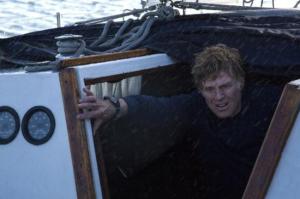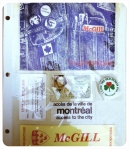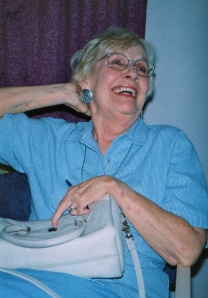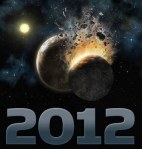I didn’t take this picture. The Woman Formerly Known as Goose snapped it on July 8 as we drove home from the animal hospital with our dying dog. We carried her to the car in the pouring rain. I held her in my arms in the back seat and sobbed uncontrollably as WFKG drove slowly through the storm. Ruby was still and quiet, as stoic in dying as I imagine she was during the three years she spent in a puppy mill. Oh, how we loved this sweet, strong, silent girl who came from nothing, gave so much, and was leaving us much too soon. As we drove into Takoma Park, the rain let up and the setting sun burst through the clouds, producing a magnificent double rainbow that demanded our attention, distraught though we were in that moment. WFKG pulled over. I jumped out of the car and started taking pictures. She stayed behind the wheel and got this shot through the front windshield. I love it for the drops of rain on the glass, as if the world were crying with us while affording us a consoling vision of unexpected beauty. Yeah, I’m a sucker for a good pathetic fallacy, but give me a break. My dog was about to cross the rainbow bridge, and suddenly there’s a double fricking rainbow in the sky! Who could resist?
A rainbow glimpsed through tears: I offer this up as my Photo of the Year because I reckon I’m not the only one struggling to find something nice to say about 2014 as it grinds — mercifully, inexorably — to an end. What’s to love about a year that brought us Ebola, Ferguson, and ISIS and took away Robin Williams, Philip Seymour Hoffman, and Lauren Bacall (among many others)? How do you make sense of a year that brings legalized pot to Colorado, same-sex marriage to Utah, and a new Congress committed to repealing all of the 21st and most of the 20th century? You don’t, or, you know, at least I don’t. Or can’t.
2014 has been the year of barely blogging for me for a number of reasons. The short, dull, honest explanation is that I’ve been busy. I got legally married this year. Bought a guitar. Buried my mother. Started a big new job. Went to China. Worried a lot about the upward trend of my weight. I’m still in love with my new job, but I’m also still learning it and still wrestling with how blogging fits into it. As I assume new responsibilities and carve out new expertise, I feel a need to be cautious in relation to social media. My blogs have always been ambiguously connected to my professional and institutional identities. During this period of transition, that ambiguity feels a bit riskier than it has in the past. I’ve felt more comfortable blogging on personal topics, but I worry about alienating readers with concerns that might seem humdrum or, heaven forbid, dull. I’d rather die than bore you, darlings, so I’ve spent less time hanging out here and more time in the cozy confines of Facebook. (Along with my brilliant new colleague Alexis Lothian, who wrote early in the fall about how personal/professional changes shifted her online positioning.)
There’s more to it than that, though. I have a terrible confession to make. I’m not just spending less time writing blogs. I’m spending less time reading them as well. At some point in the middle of the semester, my Feedly feed got so full up that I closed the tab and just stopped checking. I guess I declared blog bankruptcy. The term infobesity has begun to resonate with me, and I don’t think it’s just because it hooks in with my concerns about my weight. It’s probably a bad metaphor for information overload, because it suggests that the problem arises from individual pathology or bad behavior rather than from a structural condition nearly impossible to avoid. Still, I’m recognizing that I feel weighted down by the news, information, and analysis that come at me every time I lock eyes on a screen — which is darn near every moment of my waking life. Often I click and click and read and read, and with every click I feel less clear about what I know, less able to compose and publish my thoughts. Some days I remind myself of Nicholas Branch, the CIA archivist in Don DeLillo’s Libra tasked with piecing together the secret history of the assassination of JFK. He spends fifteen years working in a room filled with books, documents, “theories and dreams,” studying everything because, “he is in too deep to be selective.” He takes copious notes but produces precious little in the way of “finished prose” because, “It is impossible to stop assembling data. The stuff keeps coming.” He feels disheartened, immobilized, haunted, but he persists, knowing “he can’t get out.”
How do we avoid the immobilization produced by information overload? Do we stick with the logic of infobesity and put ourselves on a strict information diet, knowing that diets, like new year’s resolutions, tend to fail? Or do we reject the metaphor and find a better one, one that might more effectively capture the structural conditions of what Jodi Dean terms communicative capitalism? I’m not prepared to shut this blog down as a way of demonstrating my virtuous commitment to info calorie consciousness. I’d rather find a way to revitalize it in 2015 by using it as a tool — a fine pair of flippers, perhaps — to help me and readers play delightfully in the sea of information rather than feel overwhelmed by it. Hate that metaphor, too? Then find me a better one, Madpeople. I eagerly await your suggestions.
Oh, and happy new year. Here is a picture of two adorable puppies looking like angels in a pool of morning light. Yes, they are mine. Their names are Mattie and Max. They are litter mates. And proof, perhaps, that a double dog dare is sometimes worth the risk. Double rainbow. Double dog dare. You see what I did there, don’t you?






















